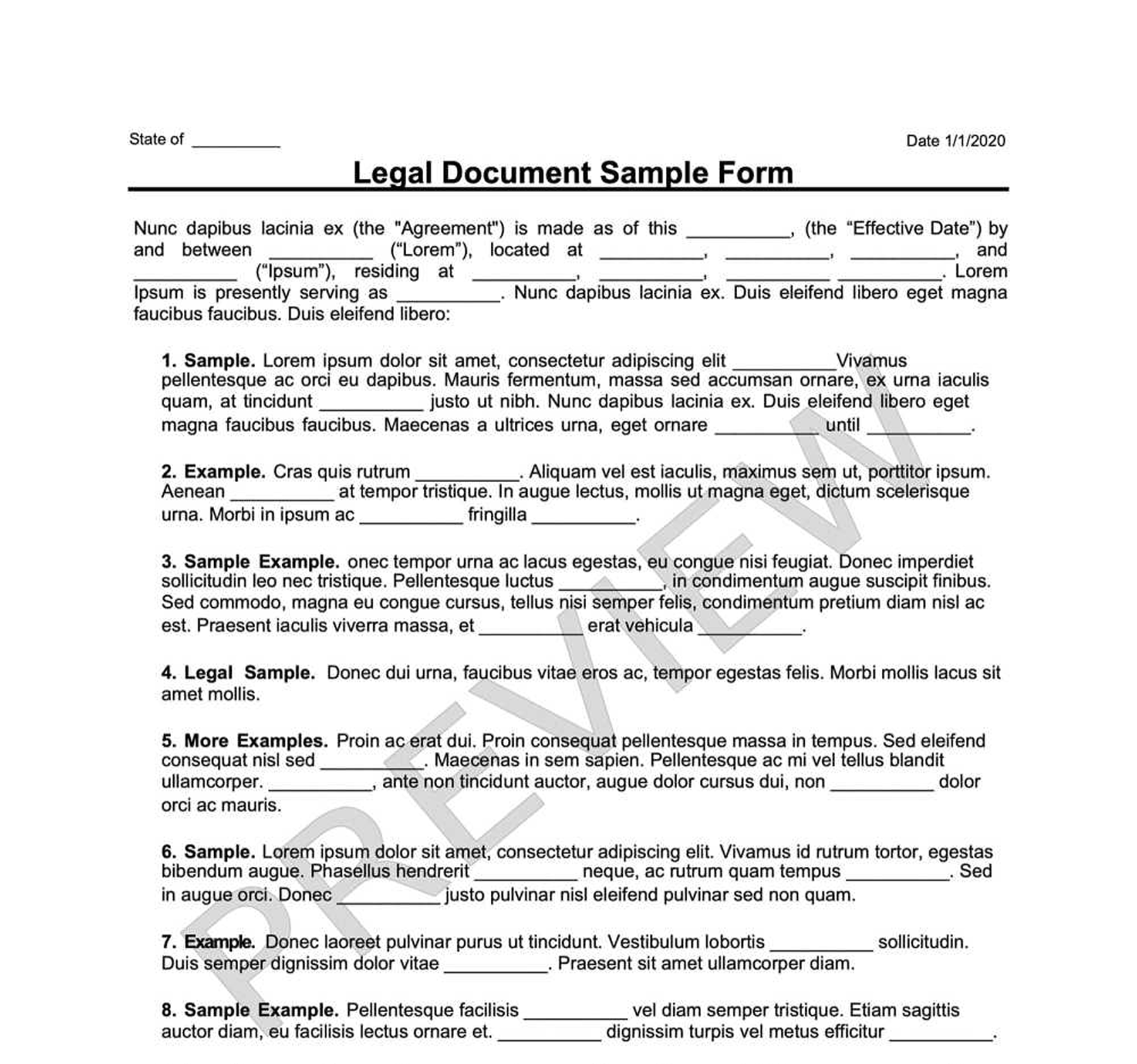Guaranty Agreement
A Guaranty Agreement is a contract that outlines a guarantor's duties and obligations in the event that the debtor defaults on the guaranteed loan.

How it Works
Build your selected document.
Answer a few simple questions with step-by-step instructions.
Print & download forms instantly. Sign & make it legal.
What Is a Guaranty Agreement?
If someone asks you to help secure a financial institution loan, they usually require you to become a guarantor.
As a guarantor, you have more assets or better credit so you can help the borrower secure a loan. The guarantor and lender, and borrower/debtor are to enter into a Guaranty Agreement.
What Is a Guaranty Agreement?
A Guaranty Agreement is a legally binding contract where the guarantor agrees to be responsible to the lender if the debtor defaults.
This agreement provides additional assurance to the lender that the borrower or debtor would be able to service the loan – on the back of the guarantor if necessary.
Somebody should only choose to enter into a Guaranty Agreement with a person who deserves their trust or desire to help.
Other Names for Guaranty Agreement
Depending on your state, a Guaranty Agreement may also be known as:
- Guaranty Agreement Form
- Personal Guaranty Agreement
- Corporate Guaranty Contract
- Agreement for Debtor Guaranty
- Third-Party Guaranty
Who Needs a Guaranty Agreement?
Guaranty Agreements are not uncommon with lending institutions, which may request borrowers to enlist a guarantor's higher creditworthiness, especially for more substantial loans. Of course, you will not have to prepare your own agreement if you are working with a lending institution. You can also act as a guarantor to a private or individual lender.
Why Use Swyft Forms for Your Guaranty Agreement?
Customized for you, by you
Create your own documents by answering our easy-to-understand questionnaires to get exactly what you need out of your Guaranty Agreement.
Specific to Your Jurisdiction
Laws vary by location. Each document on Swyft Forms is customized for your state.
How to Create a Guaranty Agreement with Swyft Forms
A Guaranty Agreement is not overly complicated, but you want to get everything right, especially if you are a private lender and lend money to someone who has a guarantor. In this case and more, the ability to depend on a proven template can go a long way.
Let Swyft Forms help with our extensive library of attorney-vetted legal forms. The process is fast and easy. All you have to do is fill out our easy-to-understand questionnaire. Once complete, simply download your form as a PDF or Word document from your secure online account.
What Information Will I Need to Create My Guaranty Agreement?
To create your document, please provide:
- Debtor Details: The legal name and contact information of the debtor or borrower.
- Lender Details: Full legal name and contact information of the lender or creditor.
- Guarantor Details: The legal name and contact information of the guarantor.
- The Effective Date: The exact when the agreement is to be signed and become effective.
- Monetary Limit: If a borrowing limit is guaranteed, it should be noted in a separate paragraph.
- Time Limit: Specify the duration of the loan and guaranty.
- Witness: This agreement requires a witness to the signatures.
- Signatures: All three parties must sign the agreement in the presence of a witness, who must also sign the contract.
Guaranty Agreement Terms
- Lender: In the context of a Guaranty Agreement, the lender supplies the funds to the debtor.
- Debtor: In the context of a Guaranty Agreement, the borrower receives the lender's funds.
- Guarantor: In the context of a Guaranty Agreement, the person guarantees the debt against the debtor's default.
- Loan: In the context of a Guaranty Agreement, this is the loan being guaranteed
- Waiver: forfeiture of a known right.
- Restitution: Damages assessed.
- Mediation: A dispute resolution process outside of the courts.
Guaranty Agreement Signing Requirements
To be legally enforceable, the Guaranty Agreement requires the signatures of all parties included in the agreement in the presence of a witness. In certain jurisdictions, the witness has to be a notary public.
What to Do with Your Guaranty Agreement?
After you have created your Guaranty Agreement on Swyft Forms, print out a copy and carry out the signing requirements outlined above. Once executed, distribute a signed copy to all three parties.
Other Names for Guaranty Agreement
- Guaranty Agreement Form
- Guaranty Agreement Document
- Guaranty Agreement Agreement
- Guaranty Agreement Contract
- Guaranty Agreement Template
- Guaranty Agreement Checklist
Who Needs a Guaranty Agreement?
Why Use Swyft Forms for Your Guaranty Agreement
Customized for you, by you
Specific to Your Jurisdiction
Why choose Swyft Forms?
Create professional documents for thousands of purposes.
Make unlimited documents and revisions.
Our documents are vetted by lawyers and are applicable to all 50 states.
